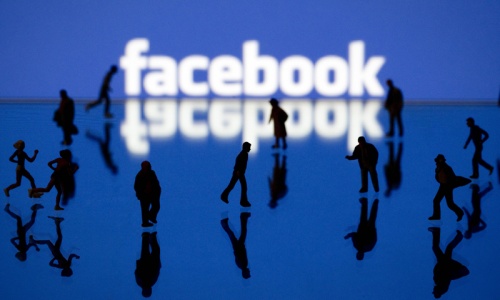M/s Koum and Acton scored a coup yesterday when Facebook announced its attention to acquire their instant messaging startup Whatsapp for $19 billion dollars.
Twitter is overflowing with media outlets, venture capitalist’s, silicon valley and the entire business world offering their perspective on this unprecedented landmark deal. There are many reasons to scrutinize every aspect of the deal including how its per user and per employee acquisition cost compares to the likes of Google’s acquisition of Youtube etc, but its also worth reviewing holistically and what this symbolizes for the shifting landscape.
Did Facebook have a choice? I don’t think so. Despite what their quarterly earnings state, Facebook is becoming increasingly less popular in public opinion for a myriad of reasons. Some of these are the advent of new, more interesting apps, the continual privacy problems and the shift in the average age of the 'monthly active users'. With the billion dollar acquisition of a profitless and indeed revenue-less Instagram, and now the 19 billion dollar acquisition of Whatsapp, which monetizes by charging it’s 450 million users $1 (one US Dollar a year) it’s clear that Facebook isn’t valuing the profitability of it’s takeover targets, rather it’s buying relevance.
It’s an expensive deal - currently about 9% of Facebook’s capitalization - but it feels fairly necessary. Zuckerberg says that Whatsapp, like Instagram, will continue to operate independently; a decision perhaps borne of necessity, not desire. With Instagram ads being introduced recently, the no-ads policy of Whatsapp, and the persistent intrusiveness of Facebook, there seems to be no logical way to amalgamate the product offerings without experiencing attrition in the user base.
Why $19 billion though?
If Whatsapp currently generates $450 million dollars a year, even at their impressive user acquisition rate, it would be many, many years before Facebook sees a return on their investment. Facebook’s $3 billion acquisition offer for Snapchat was publicly refused as was Google’s $4 billion follow up offer for the same company. These offers are more about territory than financial viability and feasibility. What is interesting is that Google offered to pay Whatsapp handsomely, only for the privilege of being informed if and when it entered into acquisition talks with any other company.
Google is paying for information about its competitors. It isn’t revelatory, it isn’t espionage, but its certainly indicative of a fiercer form of competition; one where your own survival is threatened - war.
Using the same analogy, the profiteers in this scenario are the venture capitalists. Sequoia Capital invested $8 million dollars in Whatsapp a few years ago, and it was the only venture firm to back the company. Following the announcement, they stand to make approximately $3.5 billion dollars on their paltry investment. The number of successful exits via mergers and acquisitions has grown consistently and is a trend that is expected to continue in 2014 with North America dominating the field.
In the past couple of months, Google has tried to acquire Snapchat for $4 billion, offloaded Motorola, bought Nest, and expressed interest in laying down Fiber in dozens of cities. Is there a cohesive vision guiding these plans? Maybe.
Facebook also made a failed bid to buy Snapchat for $3 billion, acquired Whatsapp, launched Paper for iOS, begun testing ads with Instagram, and celebrated its 10-year anniversary.
With multiple acquisitions north of 100 million dollars in the past few months, the previously software-only companies are making a habit of encroaching across industries in the war for user dominance. Apple has been stuck in a process of refinement for the past couple of years, Microsoft, under its new leadership, will likely enter a period of consolidation in the interim. Yahoo is continuing to redefine itself slowly.
2014 is already shaping up to be a primer for a volatile 2015, when acquisitions, disruptions and advances in materials will likely culminate in the large companies adding additional dimensions to themselves. By definition, this makes for an unlikely scenario of unifying product offerings and instead, these companies will likely expand as holding companies, at least for the time being.
Whichever way it unfolds, its a phenomenal time to be a consumer since we, the consumers are now contentiously and publicly valuable.















































Dear visitor, the comments section is undergoing an overhaul and will return soon.